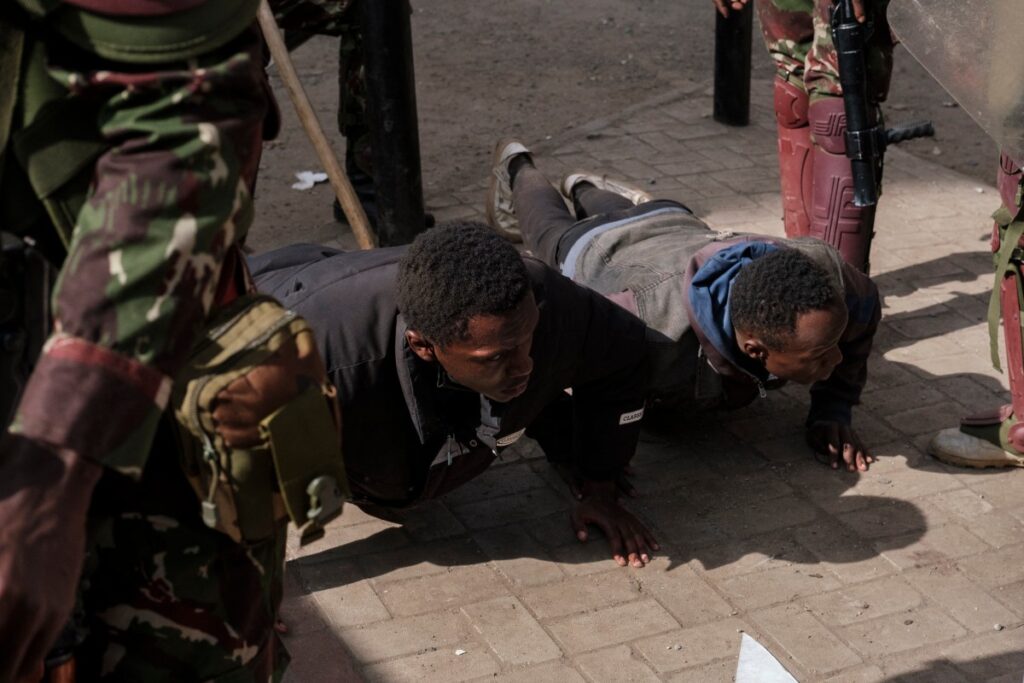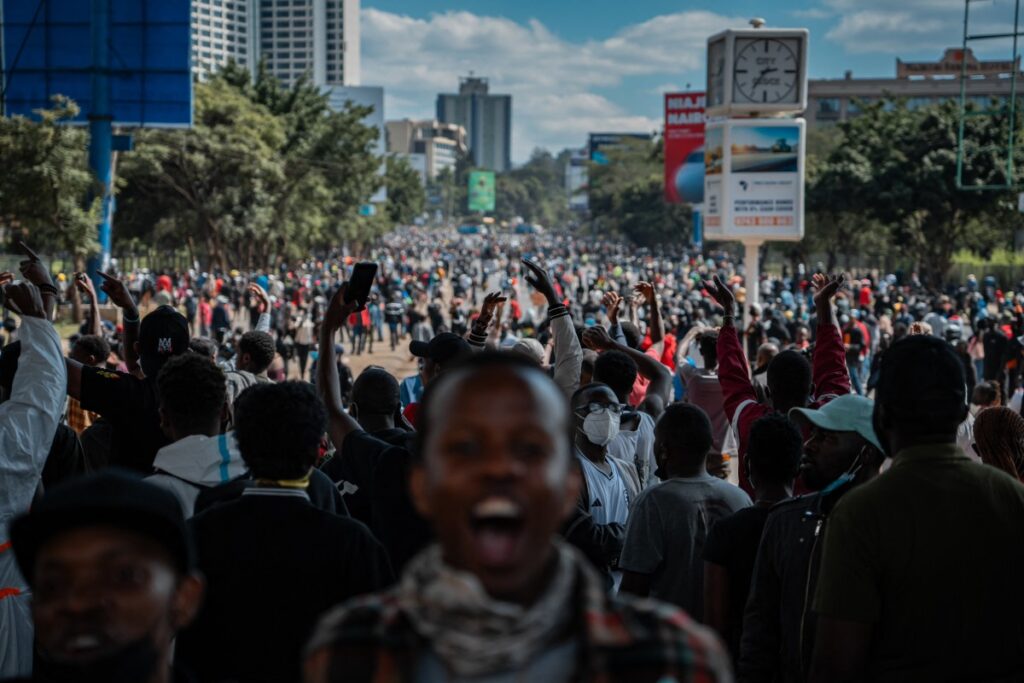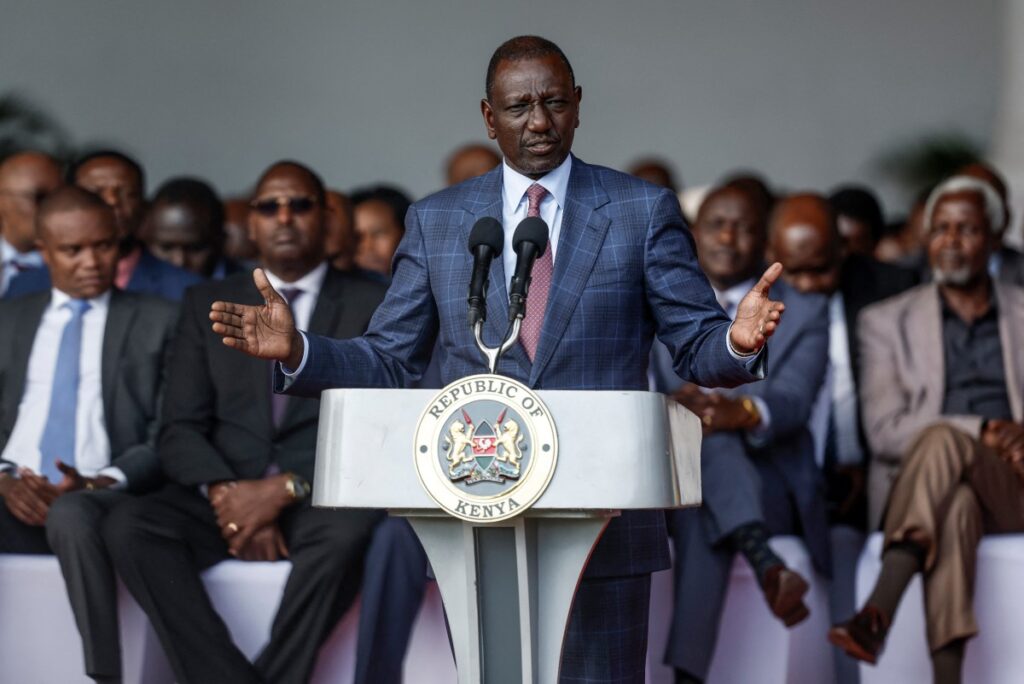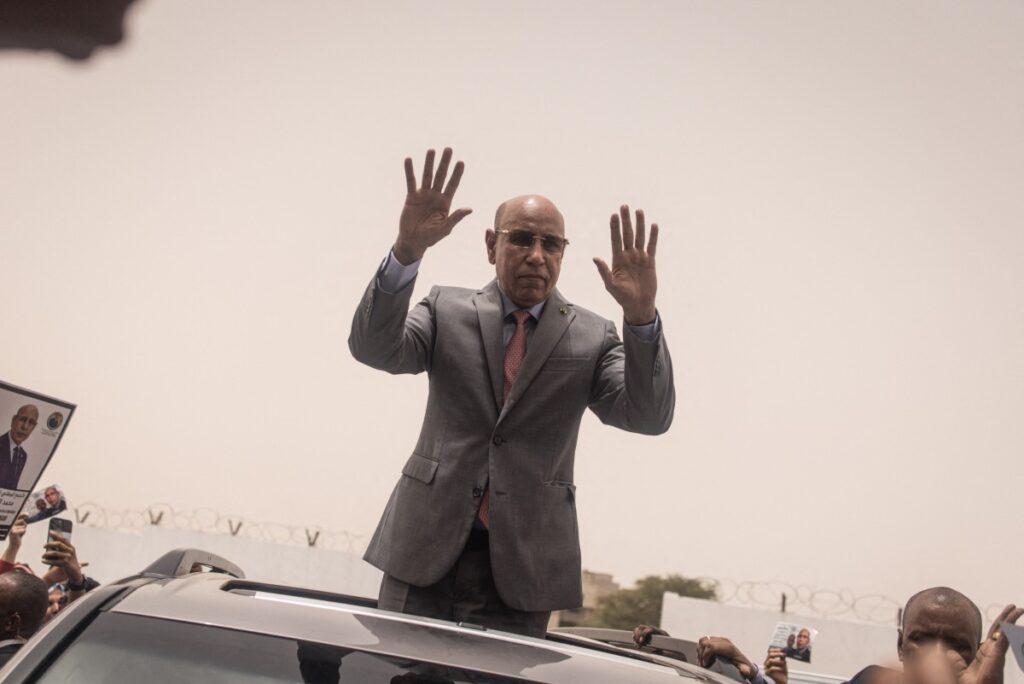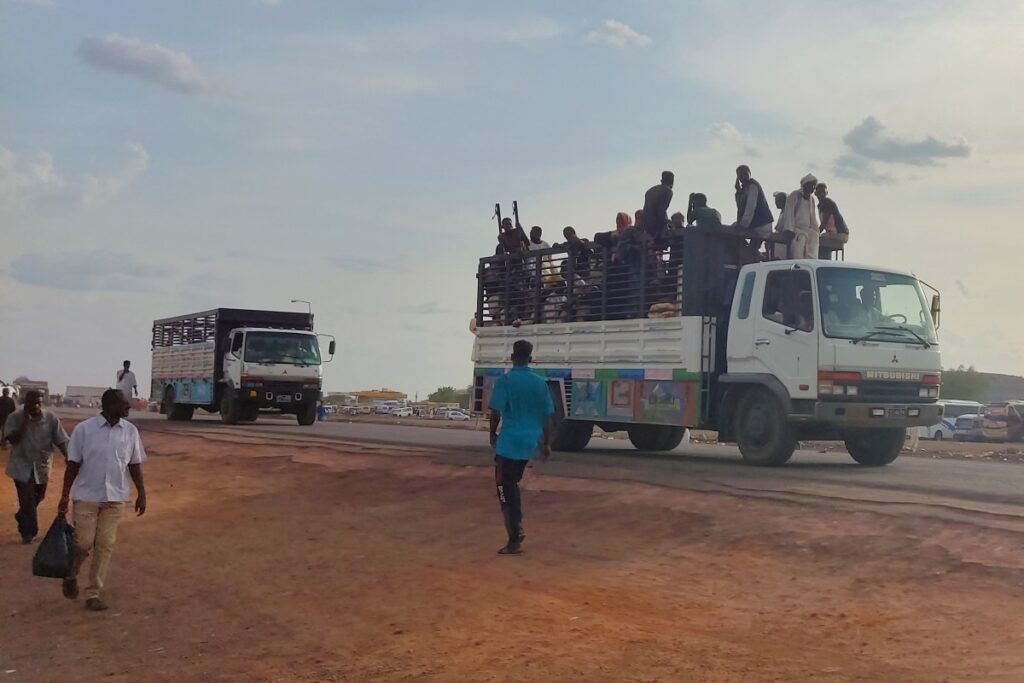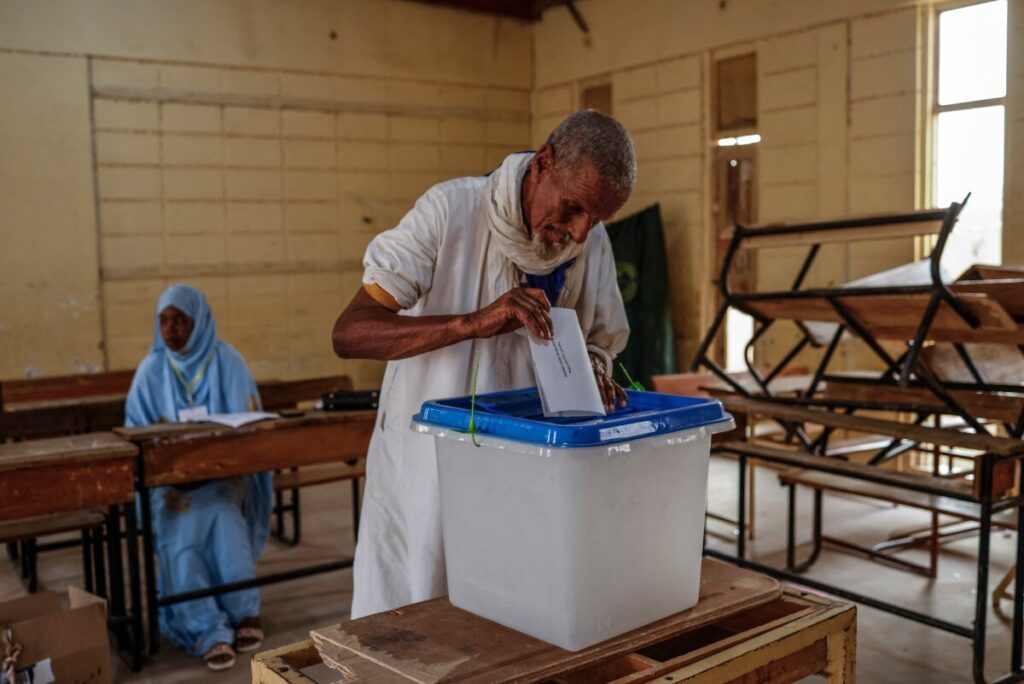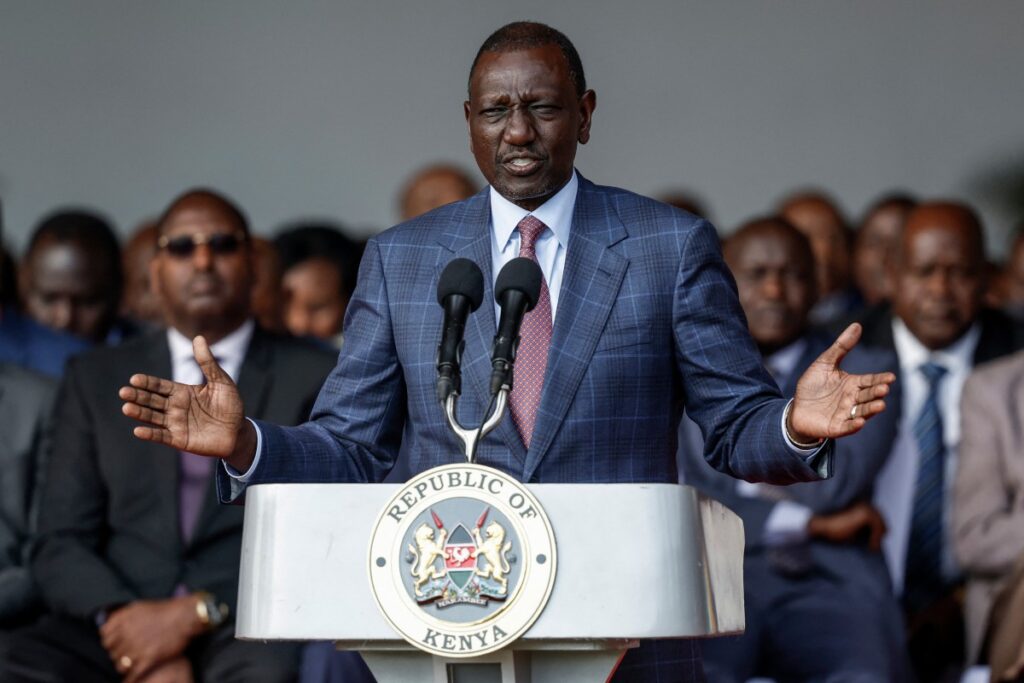
• ‘Rwanda accepted agreement because it joined Commonwealth despite being a Belgian colony’
• ‘It’s surprising Rwanda is accepting a policy that’ll dehumanise Africans’
• ‘Over 140,000 Nigerians moved to UK in past two years’ • Ireland wants to return asylum seekers to UK
Eleven weeks earlier than stated, the British Home Office seeks to launch a surprise operation to detain asylum seekers across the UK today in preparation for deportation to Rwanda.
There are thoughts that this step is timed to coincide with Thursday’s local council elections in England, to boost Rishi Sunak’s claims of cracking down on illegal migration.
In addition to picking people up across the country during a two-week experiment, officials intend to detain refugees who show up for scheduled encounters at immigration service offices.
They will be taken right away to detention facilities that have been set up for the operation, where they will be detained until later flights to Rwanda. There are already others scheduled for these flights that are being held.
Following the passage of a bill that legalises flights through Westminster, the prime minister announced last week that the first flights to Rwanda would begin in “10 to 12 weeks.”
Police in Scotland have been put on alert because of the high risks of street protests and attempts by pro-refugee campaigners to stop detentions.Local communities in Scotland have twice prevented deportations by staging mass protests on Kenmure Street in Glasgow, in May 2021, and in Nicolson Square, Edinburgh, in June 2022.
On both occasions, hundreds of people surrounded immigration enforcement vehicles to prevent asylum seekers from being removed after tense standoffs between protesters and police.
Demonstrators were alerted by a protesters’ network to the detentions on Kenmure Street, and two men were eventually released from Border Force custody after a six-hour confrontation to avoid violent clashes.
Meanwhile, Ireland has expressed its intent to send asylum seekers back to the UK. The Taoiseach (Irish prime minister), Simon Harris, has asked Ireland’s justice minister to bring legislation to the cabinet to enable asylum seekers to be sent back to the UK.
Deputy Prime Minister of Ireland, Micheál Martin, said the UK’s Rwanda policy was already impacting Ireland. Legislation to revive the UK’s Rwanda policy became law on Thursday. Ireland’s Justice Minister, Helen McEntee said: “There are many reasons we have seen an increase in migration toward Ireland.
“What’s clear in the decision that the UK has taken in choosing Brexit, is they have seen an increase in people seeking asylum in their country. The way that they deal with that, it’s their policy.
“My focus as minister for justice is making sure that we have an effective immigration structure and system.
“That’s why I’m introducing fast processing. That’s why I’ll have emergency legislation at cabinet this week to make sure that we can effectively return people to the UK and that’s why I’ll be meeting with the home secretary (James Cleverly) to raise these issues on Monday.”
Meanwhile, Ireland, in a twist of fate, is planning to send asylum seekers back to the U.K. under emergency legislation, to curb irregular arrivals through Northern Ireland.
“I’ll have emergency legislation at Cabinet this week to make sure that we can effectively return people to the U.K.,” Irish Justice Minister Helen McEntee told public broadcaster RTÉ on Sunday.
The minister added she would “raise these issues” during a meeting with British Home Secretary James Cleverly today. The move comes after British Prime Minister, Rishi Sunak claimed that the rising numbers of people seeking asylum in Ireland was proof that the Conservatives’ plan to deport people to Rwanda has worked as a “deterrent.”
Reacting to this plot to send asylum seekers to Rwanda, Senior Research Fellow, Nigerian Institute of International Affairs (NIIA), Dr Joshua Bolarinwa, said the bill shows the UK’s commitment to ending or stemming illegal migration, particularly from any African country into the state.
He said however, that leaders of some African countries like Nigeria have in recent years complained about the emigration rate, adding that most migrants are becoming redundant, jobless and getting lesser payments.
These factors, he said, are becoming a burden on Britain, thus the need to stem the menace of migration.
“They are trying to control what migration can constitute in the nearest future of nuisance and insecurity. That is why they are contributing to every policy, programme and action that would reduce illegal migration into Europe,” he said.
He noted that in recent reports published by the British High Commission, over 140,000 Nigerians have moved to the UK in the past two years. Bolarinwa explained that even the UK citizens are struggling to find jobs, especially owing to its exit from Brexit and the implications of that action, as most of the European Union investment in England, Wales, Scotland and Northern Ireland are being withdrawn, rendering the majority of the British citizens jobless, which has become UK’s priority to solve.
According to him, Rwanda can come to this agreement because it is a member of the Commonwealth as they joined in 2008, despite being a Belgian colony. Professor, Department of History and Strategic Studies, David Aworawo, stated that as an African country who understands the peculiarities of being African in a world ruled by the biases of superpowers, he is surprised that Rwanda is accepting a policy that would, in the long run, dehumanise Africans.
“It’s difficult for me to understand that Rwanda is accepting this. This asylum seeking problem is something they should deal with there. The negative impact that this would have on those involved who are Africans makes it surprising to me that a country like Rwanda which has been standing up to the West is accepting this kind of arrangement.
“We understand that Rwanda would have some benefits here and there from the programme but what I am surprised about is that an African country can accept the humiliation of Africans in this way,” he said.
He suggested that a more empathetic approach should have been adopted to the problem of refugees and asylum seekers such that while nations strategically find ways to absorb these persons, measures should be deployed to allow them to lead meaningful lives while contributing to their host countries.
“Asylum seekers should be treated with dignity. No country can indeed open their borders entirely like that but what the lessons of history teach is that countries that are sympathetic to economic migrants and refugees tend to do well in the long run.
“Especially when they are careful or they are perceptive about the migrants that are being released. That is what I would have suggested.
“The structure that the UK has adopted in dealing with migrants and refugees all this while, is not substantially wrong. However, this Rwanda arrangement is a bit surprising to me because the UK is a country that has freedom, liberty and defence of human rights as important strands of her national philosophy,” Aworawo said.



